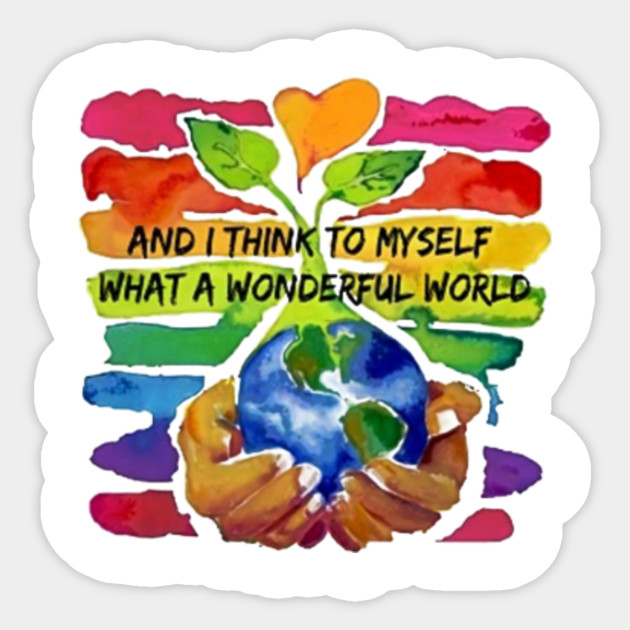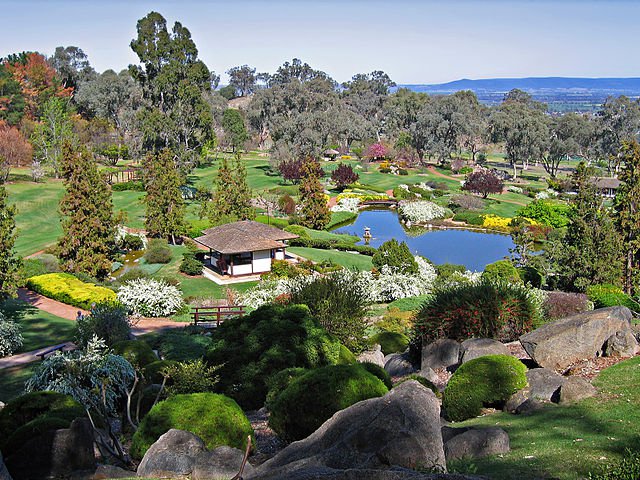 |
| Photo: Susannah Stubbs, Artist in Residence, Open Horizons |
Process Pluralism as an antidote to
the Ideology of Hate
In appreciation of, and response to, David Brooks'
"The Ideology of Hate and How to Fight It"
excerpts from David Brooks' Opinion essay in NY Times, August 5, 2019
1. Mass murderers are inspired by a shared ideology
"Many of today’s mass murderers write manifestoes. They are not killing only because they’ve been psychologically damaged by trauma. They’re not killing only because they are pathetically lonely and deeply pessimistic about their own lives. They are inspired to kill by a shared ideology, an ideology that they hope to spread through a wave of terror." (David Brooks, NY Times, August 5, 2019)
2. Their ideology is antipluralism: a yearning for "clear borders, settled truths, and stable identities" and a reaction against the "diversity, fluidity, and interdependent nature of modern life."
"Trumpian nationalists, authoritarian populists and Islamic jihadists are different versions of antipluralism.These movements are reactions against the diversity, fluidity and interdependent nature of modern life. Antipluralists yearn for a return to clear borders, settled truths and stable identities. They kill for a fantasy, a world that shines in their imaginations but never existed in real life." (David Brooks, NY Times, August 5, 2019)
3. Mass murderers share this ideology with ethnic nationalists, authoritarian populists, and Islamic jihadists, although the latter may not resort to violence.
The antipluralist ideology need not include incitements to violence, but it lends itself to violence against "others" who threaten "clear borders, settled truths, and stable identities." (Jay McDaniel)
4. The alternative to antipluralism is pluralism. It is a belief that each person is a "symphony of identities" and that no one is reducible to a single label. In the language of Whitehead, each person is an ongoing process of of assimilating many influences into one moment, in the context of which a person becomes "new" moment-by-moment.
"The struggle between pluralism and antipluralism is one of the great death struggles of our time, and it is being fought on every front...We pluralists do not believe that human beings can be reduced to a single racial label. Each person is a symphony of identities. Our lives are rich because each of us contains multitudes." (David Brooks, NY Times, August 5, 2019)
5. Pluralists believe that "mixing" and "amalgamating" is good and that a "pure culture is a dead culture."
"Pluralists believe that culture mixing has always been and should be the human condition. All cultures define and renew themselves through encounter. A pure culture is a dead culture while an amalgam culture is a creative culture. The very civilization the white separatists seek to preserve was itself a product of earlier immigration waves." (David Brooks, NY Times, August 5, 2019)
6. Pluralists believe that life is an adventure in diversity and dialogue.
"Finally, pluralism is the adventure of life. Pluralism is not just having diverse people coexist in one place. It’s going out and getting into each other’s lives. It’s a constant dialogue that has no end because there is no single answer to how we should live....Life in a pluralistic society is an ever-moving spiral. There are the enemies of pluralism ripping it apart and the weavers of community binding it together. There is no resting spot. It’s change, fluidity and movement all the way down." (David Brooks, NY Times, August 5, 2019)
7. Pluralists believe that the idea of a pure, static world is an illusion and that life is about movement, interdependence, and life.
"The terrorists dream of a pure, static world. But the only thing that’s static is death, which is why they are so pathologically drawn to death. Pluralism is about movement, interdependence and life. The struggle ahead is about competing values as much as it is about controlling guns and healing damaged psyches. Pluralism thrives when we name what the terrorists hate about us, and live it out." (David Brooks, NY Times, August 5, 2019)
8. Process Pluralists add a cosmology to what Brooks says, partly rooted in insights from physics. They believe that what David Brooks says of the world is likewise true of the universe.
They believe that the universe as a whole is vast network of inter-dependent creative inter-becoming, and that antipluralists are fighting against the very grain of a creative, dynamic process of inter-becoming. (Jay McDaniel)
9. Process Pluralists believe that the universe of inter-becoming is enfolded within a self-conscious Life (God) and that process pluralism can have a faith dimension.
For process pluralists -- sometimes called open and relational theoloians -- God is not a tyrant in the sky but rather a sky-like Mind who embraces the whole of the universe. God feels the feelings of all living beings with tender care and inwardly beckons human beings to live with compassion, creativity, and wisdom concerning the interconnectedness of things and the needs of fellow creatures. God, too, is in process. This means that antipluralists are hiding from the will, and the yearnings, of the Soul of the universe. (Jay McDaniel)
10. Process Pluralists add that people need community and the natural world to live happily and wisely.
The social ideal of process pluralism is to help build communities are compassionate, creative, participatory, multicultural, multifaith, humane to animals, good for the earth, and spiritually satisfying, with no one left behind. Process pluralists speak of these as the building blocks of ecological civilizations: the best and only hope of humankind. (Jay McDaniel)
The best way to fight the ideology of hatred, and the violence which is sometimes give rise, is not to moralize incessantly or to argue, but to help build these communities, working with the antipluralists whenever and wherever possible, understanding their need to secure identities, helping them find community. Such communities need strong and enforceable laws, but generous spirits. (Jay McDaniel)
 |
| Photo: Susannah Stubbs, Artist in Residence, Open Horizons |
* * * * * * * * * * *
THE IDEOLOGY OF HATE AND
HOW TO FIGHT IT: DAVID BROOKS
In his Opinion Column of August 5, 2019, David Brooks makes a strong case that the current cultural battle in the world is between antipluralists and pluralists, and that the antipluralists feed the ideology of hate. His column is called "The Ideology of Hate and How to Fight It." Brooks sees this antipluralist ideology -- this ideology of hate -- in Trumpian nationalism, authoritarian populism and Islamic jihadism. He presents pluralism as the needed alternative and suggests that there will be competition between these two approaches to life for many years to come.
Brooks' pluralism sounds very much like open and relational or “process” philosophy, albeit without mentioning additonal themes such as “community” and “ecology” and “spirituality” and "God." In what follows I speak of Brooks' pluralism as Process Pluralism, because his views so resemble process philosophy... and a word about the unmentioned themes at the end.
- Jay McDaniel
* * * * * * * * * * *
 |
| Mourners on Monday at a makeshift memorial for victims of the shooting in El Paso. | Credit: John Locher/Associated Press |
The Ideology of Hate and How to Fight It
The battle for the soul of our culture.
By David Brooks
Opinion Columnist
Aug. 5, 2019
Many of today’s mass murderers write manifestoes. They are not killing only because they’ve been psychologically damaged by trauma. They’re not killing only because they are pathetically lonely and deeply pessimistic about their own lives. They are inspired to kill by a shared ideology, an ideology that they hope to spread through a wave of terror.
The clearest expression of that ideology was written by the man charged with a killing spree in Christchurch, New Zealand. His manifesto has been cited by other terrorists; the suspect in this weekend’s El Paso mass shooting cited it in his own manifesto.
It’s not entirely what you’d expect. At one point its author writes about his travels around the world: “Everywhere I travelled, barring a few small exceptions, I was treated wonderfully, often as a guest and even as a friend. The varied cultures of the world greeted me with warmth and compassion, and I very much enjoyed nearly every moment I spent with them.”
The ideology he goes on to champion is highly racial, but it’s not classic xenophobia or white supremacy. Its first feature is essentialism. The most important thing you can know about a person is his or her race. A white sees the world as a white and a Latino sees it as a Latino. Identity is racial.
The second feature is separatism. Races are healthy when they are pure and undiluted. The world is healthy when people of different races live apart. The world is diseased when races mix. “I am against race mixing because it destroys genetic diversity and creates identity problems,” the El Paso suspect wrote.
The third feature is racial Darwinism. Races are locked in a Darwinian struggle in which they try to out-reproduce their rivals. Currently, the black and brown races are stronger than the white race and are on the verge of obliterating it through invasion.
If we allow them into our country, brown immigrants will overwhelm whites just as Europeans overwhelmed the Native Americans centuries ago. As the El Paso suspect put it, “The natives didn’t take the invasion of Europeans seriously, and now what’s left is just a shadow of what was.” Immigration is white replacement. Immigration is white genocide.
This is not an ideology that rises out of white
self-confidence but rather white insecurity
 |
| Mourners at another memorial, this time in Christchurch, New Zealand, in March. | Credit: Adam Dean for The New York Times |
This ideology is an extreme form of a broader movement — antipluralism — that now comes in many shapes. Trumpian nationalists, authoritarian populists and Islamic jihadists are different versions of antipluralism.
These movements are reactions against the diversity, fluidity and interdependent nature of modern life. Antipluralists yearn for a return to clear borders, settled truths and stable identities. They kill for a fantasy, a world that shines in their imaginations but never existed in real life.
The struggle between pluralism and antipluralism is one of the great death struggles of our time, and it is being fought on every front.
We pluralists do not believe that human beings can be reduced to a single racial label. Each person is a symphony of identities. Our lives are rich because each of us contains multitudes.
Pluralists believe in integration, not separation. We treasure precisely the integration that sends the antipluralists into panic fits. A half century ago, few marriages crossed a color line. Now, 17 percent of American marriages are interracial.
Pluralists are always expanding the definition of “us,” not constricting it. Eighty years ago, Protestants, Catholics and Jews did not get along, so a new category was created, Judeo-Christian, which brought formerly feuding people into a new “us.” Thirty years ago, rivalries were developing between blacks and Hispanics, and so the category “people of color” was used to create a wider “us.”
Pluralists believe that culture mixing has always been and should be the human condition. All cultures define and renew themselves through encounter. A pure culture is a dead culture while an amalgam culture is a creative culture. The very civilization the white separatists seek to preserve was itself a product of earlier immigration waves.
Finally, pluralism is the adventure of life. Pluralism is not just having diverse people coexist in one place. It’s going out and getting into each other’s lives. It’s a constant dialogue that has no end because there is no single answer to how we should live.
Life in a pluralistic society is an ever-moving spiral. There are the enemies of pluralism ripping it apart and the weavers of community binding it together. There is no resting spot. It’s change, fluidity and movement all the way down.
The terrorists dream of a pure, static world. But the only thing that’s static is death, which is why they are so pathologically drawn to death. Pluralism is about movement, interdependence and life. The struggle ahead is about competing values as much as it is about controlling guns and healing damaged psyches. Pluralism thrives when we name what the terrorists hate about us, and live it out.









![God Can't: How to Believe in God and Love after Tragedy, Abuse, and Other Evils by [Thomas Jay Oord]](https://m.media-amazon.com/images/I/41UhltD0qVL.jpg)
![The Uncontrolling Love of God: An Open and Relational Account of Providence by [Thomas Jay Oord]](https://m.media-amazon.com/images/I/41vRXeSobUL.jpg)





![What Is Ecological Civilization?: Crisis, Hope, and the Future of the Planet by [Philip Clayton, Wm. Andrew Schwartz]](https://m.media-amazon.com/images/I/51W+NzYOHUL.jpg)










